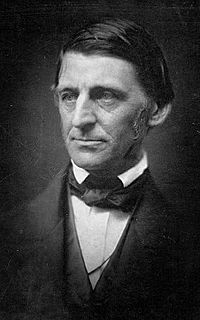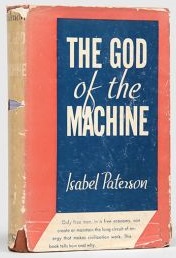 W
WIndividualism is the moral stance, political philosophy, ideology and social outlook that emphasizes the intrinsic worth of the individual. Individualists promote the exercise of one's goals and desires and to value independence and self-reliance and advocate that interests of the individual should achieve precedence over the state or a social group while opposing external interference upon one's own interests by society or institutions such as the government. Individualism is often defined in contrast to totalitarianism, collectivism and more corporate social forms.
 W
WEgoism is the philosophy concerned with the role of the self, or ego, as the motivation and goal of one's own action. Different theories on egoism encompass a range of disparate ideas and can generally be categorized into descriptive or normative forms. That is, they may be interested in either describing that people do act in self-interest or prescribing that they should. Other definitions of egoism may instead emphasise action according to one's will rather than one's self-interest, and furthermore posit that this is a truer sense of egoism.
 W
WRalph Waldo Emerson, who went by his middle name Waldo, was an American essayist, lecturer, philosopher, abolitionist and poet who led the transcendentalist movement of the mid-19th century. He was seen as a champion of individualism and a prescient critic of the countervailing pressures of society, and he disseminated his thoughts through dozens of published essays and more than 1,500 public lectures across the United States.
 W
WExistentialism ( or ) is a form of philosophical inquiry that explores the problem of human existence and centers on the experience of thinking, feeling, and acting. In the view of the existentialist, the individual's starting point has been called "the existential angst," a sense of dread, disorientation, confusion, or anxiety in the face of an apparently meaningless or absurd world. Existentialist thinkers frequently explore issues related to the meaning, purpose, and value of human existence.
 W
WThe God of the Machine is a book written by Isabel Paterson and originally published in January 1943 in the United States by G. P. Putnam's Sons. At the time of its release, it was considered a cornerstone to the philosophy of individualism. Her biographer, Stephen D. Cox, in 2004 described Paterson as the "earliest progenitor of libertarianism as we know it today".
 W
WIndividualism and Economic Order is a book written by Friedrich Hayek. It is a collection of essays originally published in the 1930s and 1940s, discussing topics ranging from moral philosophy to the methods of the social sciences and economic theory to contrast free markets with planned economies.
 W
W"The 'Me' Decade and the Third Great Awakening" is an essay by American author Tom Wolfe, in which Wolfe coined the phrase "'Me' Decade", a term that became common as a descriptor for the decade of the 1970s. The essay was first published as the cover story in the August 23, 1976 issue of New York magazine and later appeared in his collection Mauve Gloves & Madmen, Clutter & Vine.
 W
WObjectivism is a philosophical system developed by Russian-American writer Ayn Rand. Rand first expressed Objectivism in her fiction, most notably The Fountainhead (1943) and Atlas Shrugged (1957), and later in non-fiction essays and books. Leonard Peikoff, a professional philosopher and Rand's designated intellectual heir, later gave it a more formal structure. Rand described Objectivism as "the concept of man as a heroic being, with his own happiness as the moral purpose of his life, with productive achievement as his noblest activity, and reason as his only absolute". Peikoff characterizes Objectivism as a "closed system" insofar as its "fundamental principles" were set out by Rand and are not subject to change. However, he stated that "new implications, applications and integrations can always be discovered".
 W
WThe Politics of Individualism: Liberalism, Liberal Feminism, and Anarchism is a 1993 political science book by L. Susan Brown. She begins by noting that liberalism and anarchism seem at times to share common components, but on other occasions are in direct opposition to one another. She argues that what they have in common is "existential individualism", the belief in freedom for freedom's sake. However, she notes that in liberal works there exists also an "instrumental individualism", by which she means freedom to satisfy individual interests. Brown argues that the latter annihilates the intentions of the former because it allows individuals the "freedom" to disrupt the freedom of other individuals in its aim of achieving individual goals. On the other hand, instrumental individualism requires some degree of existential individualism to sustain itself.
 W
WThe "Sermon on the Mound" is the name given by the Scottish press to an address made by British prime minister Margaret Thatcher to the General Assembly of the Church of Scotland on 21 May 1988. This speech, which laid out the relationship between her religious and her political thinking, proved highly controversial.
 W
WViveza criolla is a Spanish language phrase literally meaning "creoles' cleverness" and may be translated as "creoles' cunning", describing a way of life in Chile, Argentina, Uruguay, Colombia and Venezuela, among other Latin American countries. It is a philosophy of progress along the line of least resistance and ignoring rules, a lack of sense of responsibility and consideration for others, and it extends to all social groups and throughout the whole country, although it predominates in Buenos Aires. Viveza criolla has been called "the principal cause of a moral, cultural, economic, social and political crisis". It is a similar concept to jeitinho brasileiro in Brazil.